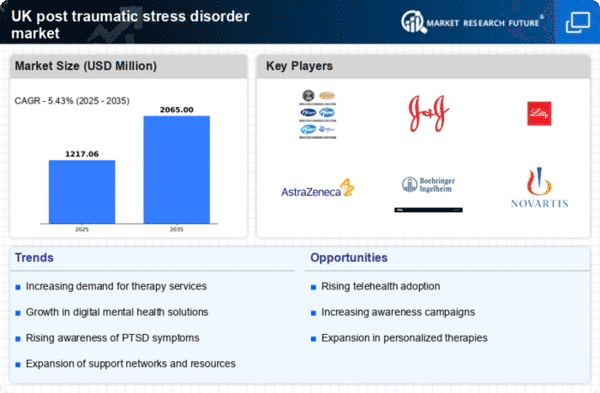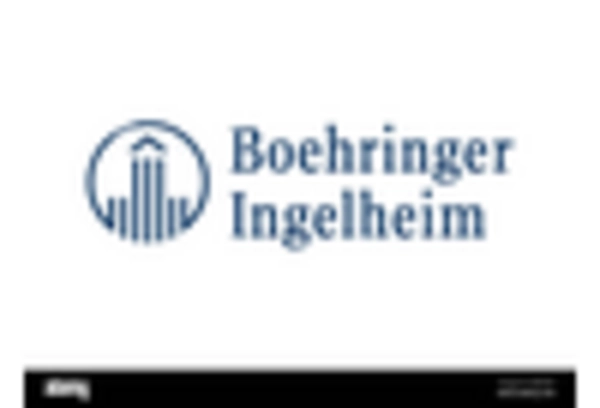Rising Incidence of PTSD Cases
The post traumatic-stress-disorder market is experiencing growth due to the increasing incidence of PTSD cases in the UK. Recent statistics indicate that approximately 4% of the UK population may experience PTSD at some point in their lives. This rising prevalence is attributed to various factors, including exposure to traumatic events such as military combat, accidents, and natural disasters. As awareness of PTSD grows, more individuals are seeking treatment, thereby driving demand for therapeutic interventions and support services. The post traumatic-stress-disorder market is likely to expand as healthcare providers and policymakers prioritize mental health resources to address this pressing issue.
Government Initiatives and Funding
Government initiatives aimed at improving mental health services are significantly impacting the post traumatic-stress-disorder market. The UK government has allocated substantial funding to mental health programs, with a focus on PTSD treatment and support. For instance, the NHS has introduced various initiatives to enhance access to mental health care, including specialized services for veterans and trauma survivors. This financial commitment not only increases the availability of treatment options but also encourages research and development in the field. Consequently, the post traumatic-stress-disorder market is poised for growth as these initiatives foster a more supportive environment for individuals seeking help.
Increased Research and Development
The post traumatic stress disorder market benefits from heightened research and development efforts aimed at understanding and treating PTSD. Academic institutions and pharmaceutical companies in the UK are investing in innovative therapies and interventions, including pharmacological treatments and psychotherapeutic approaches. Recent studies have explored the efficacy of various treatment modalities, leading to the development of new medications and therapeutic techniques. This influx of research not only enhances treatment options but also raises awareness about PTSD, potentially increasing the number of individuals seeking help. As a result, the post traumatic-stress-disorder market is likely to see a surge in demand for effective solutions.
Integration of Digital Health Solutions
The integration of digital health solutions is transforming the post traumatic-stress-disorder market in the UK. Telehealth services, mobile applications, and online therapy platforms are becoming increasingly popular, providing individuals with convenient access to mental health resources. These digital solutions offer flexibility and anonymity, which may encourage more people to seek help for PTSD. Furthermore, the COVID-19 pandemic has accelerated the adoption of telehealth, leading to a lasting change in how mental health services are delivered. As technology continues to evolve, the post traumatic-stress-disorder market is likely to expand, driven by the demand for innovative and accessible treatment options.
Growing Acceptance of Mental Health Treatment
The growing acceptance of mental health treatment in the UK is a crucial driver for the post traumatic-stress-disorder market. Societal attitudes towards mental health have evolved, with more individuals recognizing the importance of seeking help for psychological issues. This shift in perception has led to increased utilization of mental health services, including those specifically targeting PTSD. As stigma diminishes, individuals are more likely to pursue treatment options, thereby expanding the market. The post traumatic-stress-disorder market is expected to thrive as public awareness campaigns and educational initiatives continue to promote mental health as a vital component of overall well-being.
















